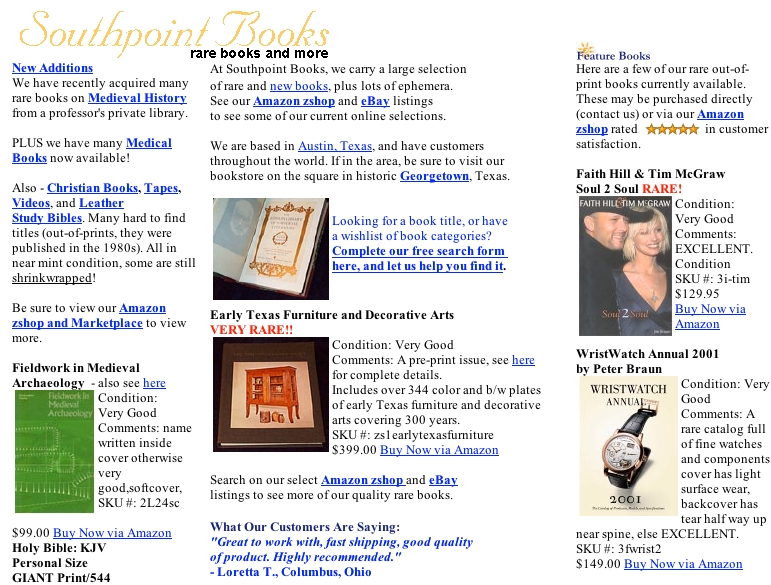Using the Internet As A Tool
- by Carl Burnham

The writer maintains a website for Southpoint Books
As an analysis tool, the Internet can provide a targeted approach when doing research about a book or paper item. For older books, this can sometimes be like looking for a needle in a haystack. This may soon change. According to a recent New York Times article, the leading search engine, Google, has plans to digitize pre-1923 books at Stanford University libraries and make them available online. Google also has a new beta service, Google Print, which partially indexes books with an introduction, reviews, a small excerpt, and the author’s biography, with links to leading online book retailers, including Amazon. Amazon does this now, with their controversial Search Inside the Book function. I note controversial because I and many other book buyers and sellers in online forums have viewed this as “muddying” up the search results, with many more Amazon results that have to be sorted through before finding the item you are searching for. Several results are totally unrelated to the search, and appear because the search phrase is mentioned somewhere within the book, but not the title. As the leading search engine, if Google ever decided to compete with Amazon in selling books (and provide yet another potential avenue for booksellers in the mix), it would prove to be interesting.
Tips For Booksellers Having A Web Site
In designing web sites for others, the essential ingredient I find to keep a visitor’s interest is having quality content. Besides listing books within multiple book seller channels, including Abe, Alibris, Amazon, and other book sites, search engines are the primary tools available to booksellers in reaching their online markets. By also integrating targeted keywords and descriptions within web pages, booksellers can only enhance site positioning for their website within search engines. For keywords used, make sure that they are not repeated many times, or that hidden text is used that repeats key phrases. This is considered spamming by search engines, and can lead to your site being blocked from results when searches are done. Some choose to pay search engines for prominent placement in an ad section within search results. This sometimes can gain traffic, especially if it is a website that has just been launched.